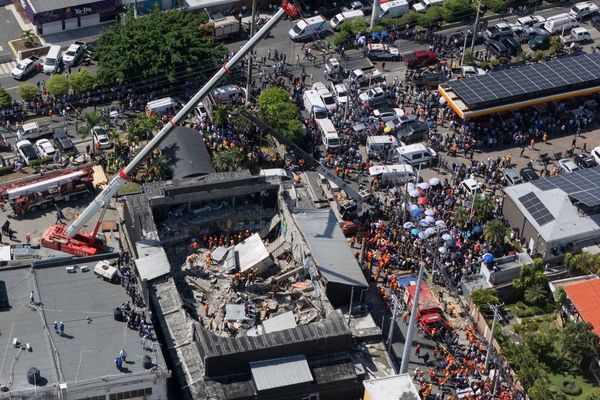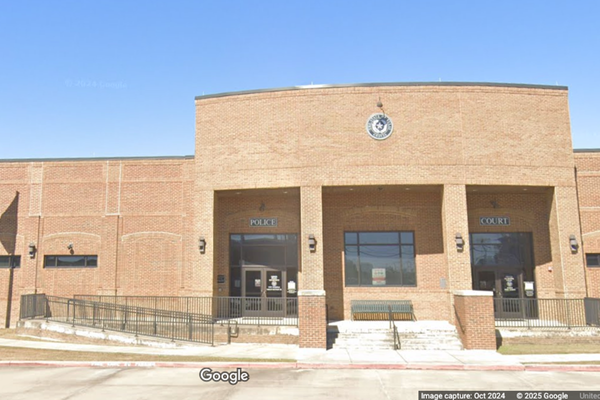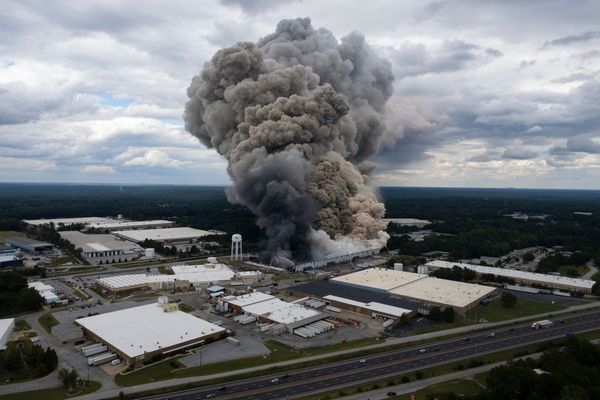Residents in Kyiv have organised huge resistance efforts to deter the Russian invasion. On the ninth day of the conflict, FRANCE 24 joined the civilian and military forces who have sworn to defend the Ukrainian capital against Putin’s army.
Trellis fencing, combat boots, sleeping bags: Kostya Kravets throws anything he thinks might be useful into two large black sports bags. The 43-year-old accountant knows that his Territorial Defence unit needs anything and everything he can provide.
“The absolute priority at the moment is bullet-proof vests and helmets. We also need drones, walkie-talkies and diesel generators,“ Kravets tells FRANCE 24, before leaving for his base in Tarasivka in southwest Kyiv. Every minute counts in the fight to fortify the capital and surrounding areas.

He has barely left before others enter the ordinary-looking building in Kyiv, now transformed into a hive of resistance operations. Entire rooms have been set aside for storing medicine, water, clothes and electronics. Similar hubs have opened up around the capital since the start of the war. The sense of solidarity, the flood of donations and the dedication of volunteers contains echoes of Ukraine’s Maidan Revolution in 2014 – a series of violent protests that overthrew the country’s Russia-backed government.
Today, the juggernaut of the Russian military may be in close proximity, but it has not dented the spirit of the resistance.
'We are 100% ready'
“From a military perspective, we are 100% ready. The Russians are going to try and enter Kyiv, but they’re going to realise it’s impossible … They have swallowed their own propaganda and think the Ukrainians are going to welcome them with flowers,” says Serhiy Prytula, a politician and former actor who is running the logistics hub.
“The Russians still don’t understand where they are.”

Prytula, who became well known in Ukraine from TV shows such as The Voice, says there is a waiting list of “more than 1,500 people” for a bullet-proof vest. An international effort to transport large quantities of ballistic protection and other equipment from Poland via Lviv has been set up.
Efforts among volunteers mean that the Territorial Defence Forces – the second front of the resistance in Kyiv – have been provided with equipment. The civil reserve forces received arms as soon as Russia invaded Ukraine.
“We need the Territorial Defence Force so that the army can concentrate on combat operations. The whole country is now part of territorial defence,” says Prytula.

The reserve fighters, who wear yellow arm bands, have become omnipresent in the streets of Kyiv. They can be found in large numbers in the northern quarters of the capital, where Russian reconnaissance fighters launched their first attacks at the start of the conflict.
Inexperienced but motivated
“Our objective is to carry out vehicle checks, verify documents, search for saboteurs, enforce the curfew and prevent looting,” says Oleg, a neighbourhood supervisor with the Territorial Defence in northern Kyiv. The 50-year-old business man has the air of a typical new recruit: inexperienced but motivated. He was overseas when Russia invaded Ukraine, but quickly returned to Kyiv by car to defend his country.

“We have seen how the Russian world works. There is no choice, no elections, we have to obey someone chosen in Moscow,” he says. Oleg is originally from east Ukraine and spent one year living in administrative zones run by Luhansk separatists in Donbas.
“Ukraine is free. It is a place where we can speak freely and disagree … We didn’t want war, but now we have no choice. We have to fight.”
'We won’t stay at home'
This opinion is shared by a group in their 20s, who have come to help strengthen a checkpoint by digging trenches. The excavated earth is then shovelled into white bags and used to barricade positions held by members of the Territorial Defence.
“My uncle has already signed up. My boyfriend and I called, and have even been to the recruitment centre twice since the invasion started. We don’t want to stay at home, and we won’t stay at home,” says economics student Marina Mahdenko.

She celebrated her 23rd birthday on March 1, the same day that Russian strikes destroyed the television tower in Kyiv. As she lives nearby she heard the explosions, which killed five people. For her and her friends, there is no question of spending the rest of their lives in a state subjugated by Moscow.

'We want to be alongside the army'
This flood of volunteers joining the Territorial Defence Force has allowed more experienced fighters to take the fight forwards, knowing that someone is covering their backs.
“We want to be alongside the army, taking the offensive and killing invaders,” says one such fighter, 54-year-old Evgeniy Yarantsev.
He is stationed around 10 kilometres northeast of Oleg and Marina’s checkpoint, near to Hostomel Airport.

His troop has been engaged in relentless fighting at the strategic site since the first day of the invasion, when Russian paratroopers attempted a surprise attack.
“Of the 200 airborne troops that tried to capture the airport so that Russian planes could land here, two-thirds were killed and the rest are in position in nearby forests … We had good results in the first few days,” he says, smiling to reveal multiple gold teeth. Nonetheless, the veteran expects a long, hard war. Some in his troop have already been killed and injured; Yarantsev already has a slight injury to his left eye.

Those losses have done little to dampen morale among the soldiers, and this troop in particular shares a long and bloody history. Most met for the first time on the barricades during the Maidan Revolution before forming an autonomous troop to fight separatist, pro-Russian forces in Donbas.
Russia’s invasion of Ukraine has reunited them to fight the biggest battle of their lives. To mark the occasion, Yarantsev baptised the group the “Conan Unit” after the 1982 film starring Arnold Schwarzenegger as Conan the Barbarian. Perhaps an omen of the epic battles to come.
This story was translated from the original in French







